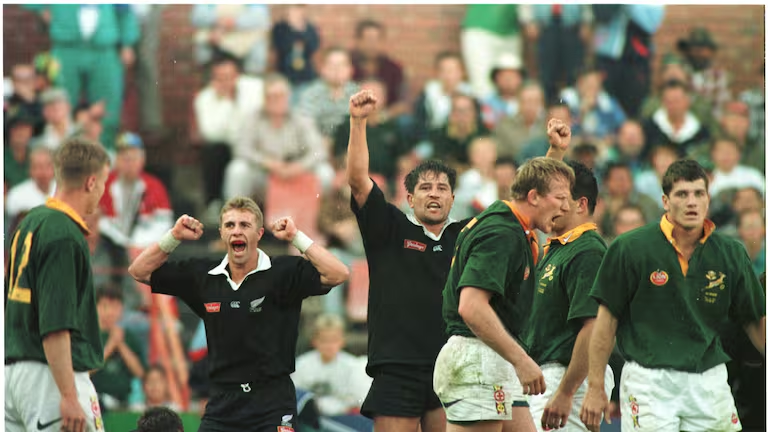Selfish Laporte in La-La-Land
Mark Keohane, on IOL Sport, writes that the French Rugby Federation president Bernard Laporte’s proposed annual 20-team Super Club World Cup is nothing more than a personally motivated World Rugby electioneering ploy. It won’t happen.
Laporte, the man singularly responsible for screwing South Africa’s 2023 hosting of the Rugby World Cup and using the French sports ministry’s unlimited cheque book resource to buy France the World Cup 2023 votes, has only one ambition – and that is to be the chair of World Rugby.
Laporte’s way in is to first be the vice-chair and he will oppose incumbent Augustin Pichot, who has served as vice chair to Englishman Bill Beaumont since 2015. Pichot is opposing Beaumont in May’s World Rugby elections.
Laporte’s 20-team Super Club competition is nothing new. Similar proposals have been discussed within World Rugby for the past decade and a half, but ultimately the proposal has never made it past an opening discussion because of the contrasting structure of a northern and southern hemisphere season. There could never be consensus on when to accommodate such a competition.
The only consistency in World Rugby has been the structure of the World Cup every four years. It is the only time the northern and southern hemispheres come together with one common goal, which is to play for the title of world champions over a six-week period in one country.
France will host the 2023 World Cup, with Japan the most recent hosts in 2019.
World Rugby’s powerbase struggle ensured that a proposed global calendar that incorporated an annual World Test Rugby Championship League also didn’t make it beyond a tabled proposal.
The respective unions/federations that make up the Six Nations couldn’t find common ground on a global calendar that would have reshaped the international game. The southern hemisphere has for some time, by way of the Sanzaar’s big four, been united in thinking and execution when it comes to the Rugby Championship and Super Rugby. This unity has not translated to global unity with the north, whose national federations are constantly in conflict with their respective club leaderships.
Laporte, wearing his international hat with his proposal, won’t easily get support from the club structures, and already the European Professional Club Rugby (EPCR) has publicly rejected Laporte’s reported proposal.
Laporte’s big idea is to sacrifice the European Champions Cup and use those nine weeks to host a six-week 20-club tournament, along similar lines to the World Cup. Laporte’s proposal is for six teams from Super Rugby, four teams from France, four from England, four from Pro 14 and one from Japan and the United States to make up the competition participants.
South Africa, in this structure, would have two teams in the competition.
Laporte’s proposal, commercially and logistically, has a northern hemisphere bias. It does not take into consideration existing southern hemisphere commitments to Super Rugby, domestic competitions in South Africa, New Zealand and Australia.
And it certainly doesn’t factor in the current lack of a global international season.
Laporte’s motivation is that a global competition would financially and commercially be more lucrative than the existing Champions Cup and that it would be a straight swap for the northern hemisphere teams, who would not play in the Champions Cup but in this global competition.
His proposal also makes the assumption the southern hemisphere Super Rugby, Rugby Championship and domestic structures would be revamped to accommodate a competition, benefiting the north more but sold in the guise of being global.
Laporte is all about himself and so is a proposal that has been given more time in the media than it will be in World Rugby’s executive boardroom.








